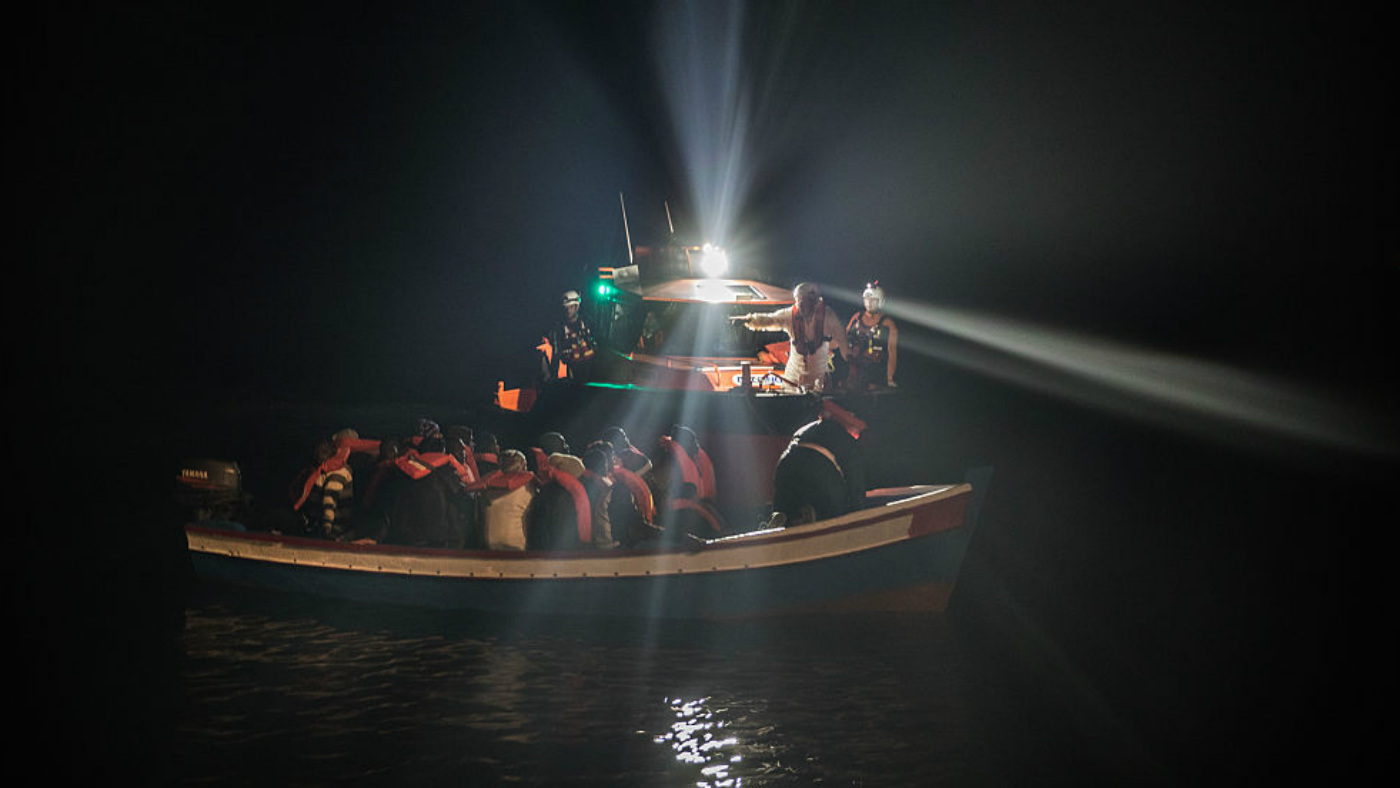Why migrant rescue ships are missing from the Mediterranean
Aid agencies warns thousands of people risk dying at sea because of anti-immigration policies in Europe

A free daily email with the biggest news stories of the day – and the best features from TheWeek.com
You are now subscribed
Your newsletter sign-up was successful
NGO migrant rescue ships have been absent from the central Mediterranean for the longest period since they began operating in 2015, according to The Guardian.
Due to a crackdown by European countries, vessels have not been operating in one of the most dangerous sea crossings for refugees and migrants for more than two weeks.
Aid agencies told the newspaper that the anti-immigration policies enforced by governments in Italy and Malta could result in thousands of people dying on the main route from North Africa to Europe.
The Week
Escape your echo chamber. Get the facts behind the news, plus analysis from multiple perspectives.

Sign up for The Week's Free Newsletters
From our morning news briefing to a weekly Good News Newsletter, get the best of The Week delivered directly to your inbox.
From our morning news briefing to a weekly Good News Newsletter, get the best of The Week delivered directly to your inbox.
“This tragedy has been going on for years and is especially bad now,” says Frederic Penard, the director of operations for the NGO SOS Mediterranee. “There are fewer boats, and with fewer boats there are fewer rescues, and there are more deaths.”
Earlier this month, the UN warned that the death rate for migrants attempting to reach Europe has risen even though the numbers trying to make the crossing has fallen.
The report blamed the increase in the death rate on fewer NGO boats being active on the Libyan coast, The Daily Telegraph says.
Despite the decrease in people attempting the journey, the issue remains deeply divisive across southern Europe.
A free daily email with the biggest news stories of the day – and the best features from TheWeek.com
Italy has previously closed its ports to NGO ships carrying rescued refugees and migrants, including unaccompanied children and pregnant women.
The country’s decision, part of the new far-right government’s promise to halt the flow of people into the country, has forced NGOs to dock in other countries or abandon their rescue missions altogether.
The Aquarius, which was forced to detour to Spain after Italy and Malta closed their ports to it, is due to depart from France in the next few days but its NGO operators, MSF and SOS Mediterranee, “cannot guarantee” its constant presence in the sea, The Guardian says.
Under a deal struck between Libya and the Italian authorities in 2017, the North African nation’s coastguard returns rescued refugees and migrants back to the country, where human right groups warn they are detained and mistreated.
“Italy has obtained what it wanted,” said Fulvio Vassallo, an asylum law professor at the University of Palermo. “Rome has managed to get rid of the eyes of the NGOs, who could testify to the abuses of the Libyan coastguard.”
-
 Why is the Trump administration talking about ‘Western civilization’?
Why is the Trump administration talking about ‘Western civilization’?Talking Points Rubio says Europe, US bonded by religion and ancestry
-
 Quentin Deranque: a student’s death energizes the French far right
Quentin Deranque: a student’s death energizes the French far rightIN THE SPOTLIGHT Reactions to the violent killing of an ultraconservative activist offer a glimpse at the culture wars roiling France ahead of next year’s elections
-
 Secured vs. unsecured loans: how do they differ and which is better?
Secured vs. unsecured loans: how do they differ and which is better?the explainer They are distinguished by the level of risk and the inclusion of collateral
-
 Switzerland could vote to cap its population
Switzerland could vote to cap its populationUnder the Radar Swiss People’s Party proposes referendum on radical anti-immigration measure to limit residents to 10 million
-
 Epstein files topple law CEO, roil UK government
Epstein files topple law CEO, roil UK governmentSpeed Read Peter Mandelson, Britain’s former ambassador to the US, is caught up in the scandal
-
 Iran and US prepare to meet after skirmishes
Iran and US prepare to meet after skirmishesSpeed Read The incident comes amid heightened tensions in the Middle East
-
 Israel retrieves final hostage’s body from Gaza
Israel retrieves final hostage’s body from GazaSpeed Read The 24-year-old police officer was killed during the initial Hamas attack
-
 China’s Xi targets top general in growing purge
China’s Xi targets top general in growing purgeSpeed Read Zhang Youxia is being investigated over ‘grave violations’ of the law
-
 Panama and Canada are negotiating over a crucial copper mine
Panama and Canada are negotiating over a crucial copper mineIn the Spotlight Panama is set to make a final decision on the mine this summer
-
 Why Greenland’s natural resources are nearly impossible to mine
Why Greenland’s natural resources are nearly impossible to mineThe Explainer The country’s natural landscape makes the task extremely difficult
-
 Iran cuts internet as protests escalate
Iran cuts internet as protests escalateSpeed Reada Government buildings across the country have been set on fire